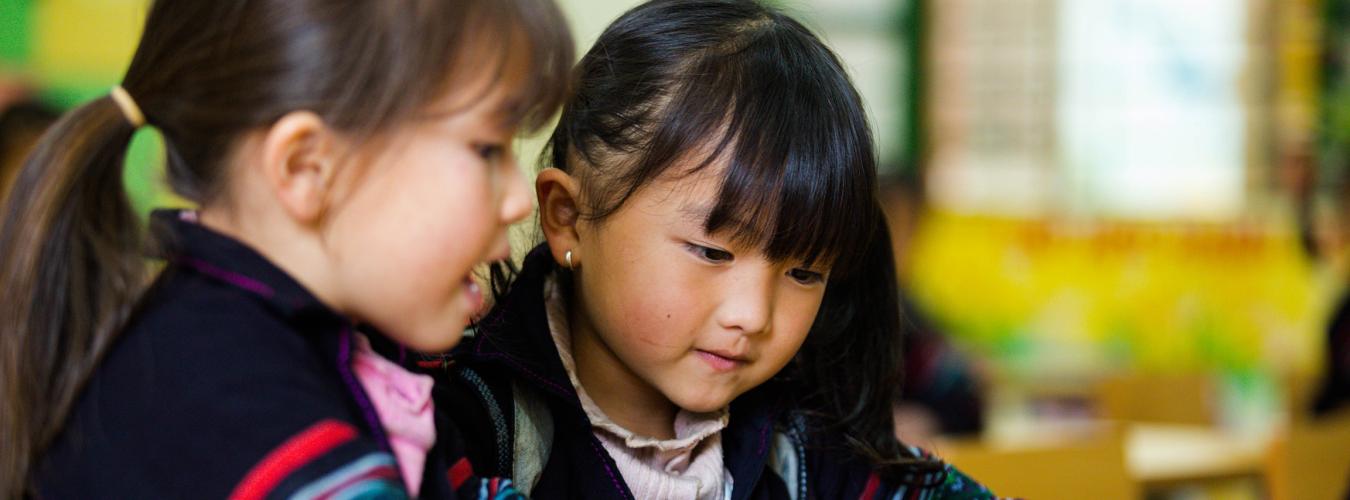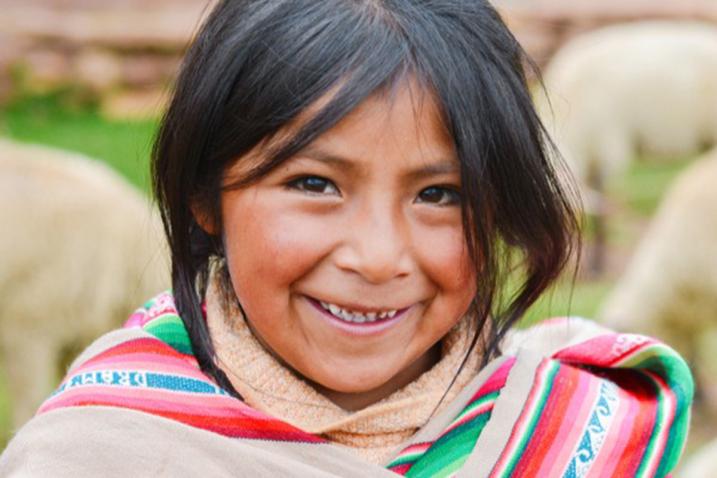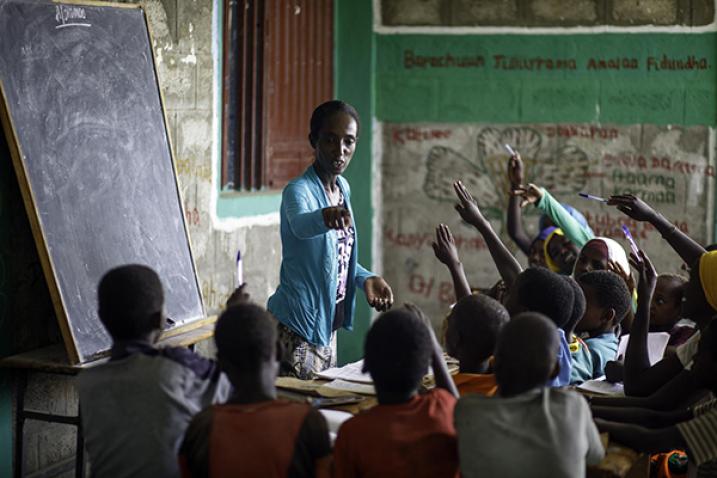Multilingual education – a pillar of learning and intergenerational learning
Multilingual and multicultural societies thrive through the preservation of their languages, which serve as conduits for traditional knowledge and cultural heritage. However, linguistic diversity faces increasing threats as more languages vanish. Currently, 40% of the global population lacks access to education in their native language, a figure that exceeds 90% in certain regions. Research underscores the benefits of using learners' native languages in education, fostering better learning outcomes, self-esteem, and critical thinking skills. This approach also supports intergenerational learning and cultural preservation.
International Mother Language Day, first proclaimed by UNESCO and later adopted by the UN General Assembly, underscores the role of languages in promoting inclusion and achieving Sustainable Development Goals. Multilingual education policies, highlighted in the 2024 theme “Multilingual education – a pillar of learning and intergenerational learning”, are crucial for inclusive education and the preservation of indigenous languages. By starting education in the learner's mother tongue and gradually introducing other languages, barriers between home and school are bridged, facilitating effective learning.
Multilingual education not only promotes inclusive societies but also aids in preserving non-dominant, minority, and indigenous languages. It is a cornerstone for achieving equitable access to education and lifelong learning opportunities for all individuals.
Event
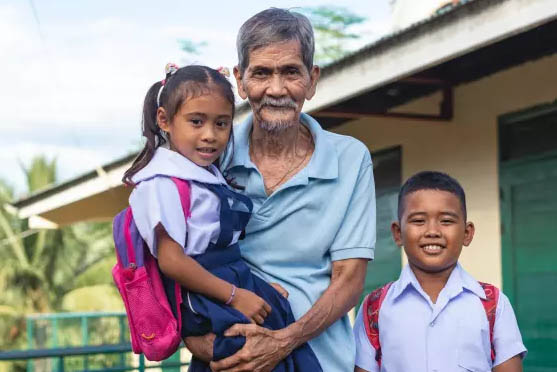
Multilingual education, a pillar of learning
21 February 2024 : 10:00 am - 1:00 pm (CET)
Location: UNESCO Headquarters, Paris, France (In-person)
Language(s): French, Spanish, English (webcast link coming soon)
Safeguarding Linguistic Diversity
Languages, with their complex implications for identity, communication, social integration, education and development, are of strategic importance for people and planet. Yet, due to globalization processes, they are increasingly under threat, or disappearing altogether. When languages fade, so does the world's rich tapestry of cultural diversity. Opportunities, traditions, memory, unique modes of thinking and expression — valuable resources for ensuring a better future — are also lost.
Every two weeks a language disappears taking with it an entire cultural and intellectual heritage. At least 45% of the estimated 7000 languages spoken in the world are endangered. Only a few hundred languages have genuinely been given a place in education systems and the public domain, and less than a hundred are used in the digital world.
Multilingual and multicultural societies exist through their languages, which transmit and preserve traditional knowledge and cultures in a sustainable way.
International Mother Language Day is observed every year to promote linguistic and cultural diversity and multilingualism.
Background
International Mother Language Day was proclaimed by the General Conference of the United Nations Educational, Scientific and Cultural Organization (UNESCO) in November 1999. The idea to celebrate International Mother Language Day was the initiative of Bangladesh. The UN General Assembly welcomed the proclamation of the day in its resolution of 2002.
On 16 May 2007 the United Nations General Assembly in its resolution A/RES/61/266 called upon Member States "to promote the preservation and protection of all languages used by peoples of the world". By the same resolution, the General Assembly proclaimed 2008 as the International Year of Languages, to promote unity in diversity and international understanding, through multilingualism and multiculturalism and named the United Nations Educational, Scientific and Cultural Organization to serve as the lead agency for the Year.
Today there is growing awareness that languages play a vital role in development, in ensuring cultural diversity and intercultural dialogue, but also in strengthening co-operation and attaining quality education for all, in building inclusive knowledge societies and preserving cultural heritage, and in mobilizing political will for applying the benefits of science and technology to sustainable development.
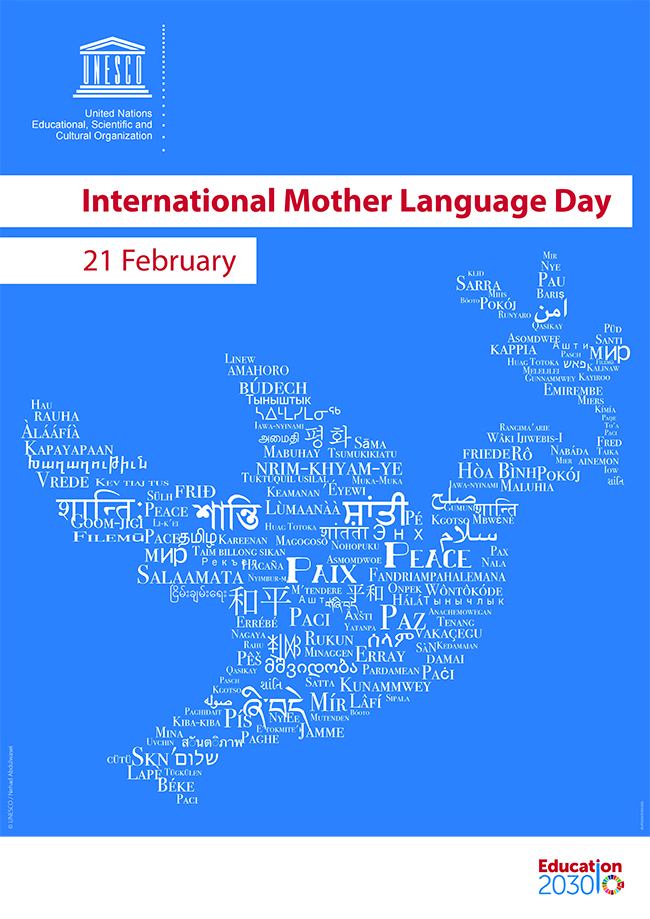
UN and Multilingualism
- Multilingualism at the United Nations: Why it matters
- Multilingualism Coordinator
- Research Guide on Multilingualism at the United Nations
Documents
- Convention for the Safeguarding of the Intangible Cultural Heritage
- Convention on the Protection and Promotion of the Diversity of Cultural Expressions
- Convention against Discrimination in Education
- Universal Declaration on Cultural Diversity
- Convention for the Safeguarding of the Intangible Cultural Heritage
- Recommendation concerning the Promotion and Use of Multilingualism and Access to Cyberspace
- Convention on the Protection and Promotion of the Diversity of Cultural Expressions
- International Covenant on Civil and Political Rights
- Declaration on the Rights of Persons belonging to National or Ethnic, Religious and Linguistic Minorities
- Declaration on the Rights of Indigenous Peoples
- Preparation of a convention for the protection of indigenous and endangered languages
- Education, language and the human rights of minorities
Resources
- International Decade of Indigenous Languages (2022-2032)
- International Year of Indigenous Languages (2019)
- Organisation Internationale de la Francophonie

